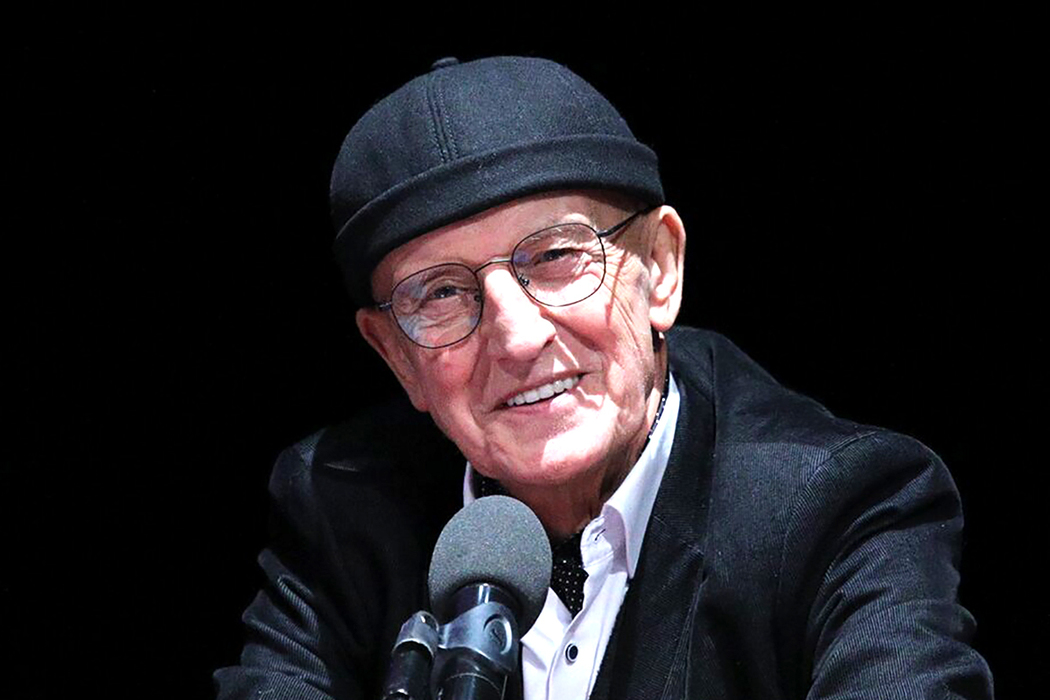It became known what Rimas Tuminas left in his will
[ad_1]
With Rimas Tuminas, who died in Italy and where a funeral mass for him will begin in a couple of hours, Moscow says goodbye in its own way. He says goodbye with dignity on Arbat, near the theater, in the spectators’ and actors’ foyers. Here he created his theatrical masterpieces, adding to the golden collection of Vakhtangovsky’s performances and enriching the Russian theater with his art.
The Vakhtangov Theater, whose advertising windows now contain only portraits of the Master, has many flowers. Since yesterday, people have been carrying and carrying bouquets – some modest, one tremulous flower, others a solid bouquet. This is their last bow and last farewell to the great artist and person Rimas Tuminas, a Lithuanian with a Russian soul, whom they most likely did not know personally, but they saw his performances or heard about them, that they should definitely run to see them.
By a strange coincidence, on the day he died far from here – in an Italian clinic, at the Vakhtangov Theater, where he had not been for two years, they were performing “War and Peace,” his last theatrical masterpiece. The actors didn’t know anything, but in the third act (and the performance is long and ends late), during the intermission someone saw a post flash on social networks – “Tuminas has died.” And the third act, which is already played to the emotional limit, as the theater employees told me, the actors don’t remember how they finished it. With a lump in my throat, with unshed tears, with suppressed crying.
When the performance ended closer to midnight, they did not disperse, but gathered in the actors’ foyer. They cried in remembrance and remembered their artistic leader. Theater director Kirill Krok, who arrived from a business trip that day, told me about his last conversation with Rimas Tuminas on the phone.
– It was on Monday. He was already at the clinic. “Do you know what I’m doing now?” – Rimas Vladimirovich asked me. “I can’t imagine,” I answered. “I’m watching Evgeniy Onegin.” It was a recording of one of the last performances: we sent it to him so that he could watch it and make comments to the artists. We agreed that he would write down all the comments and transmit them to Moscow. He understood how important this was for artists.
It’s terrible that neither you nor the artists (and not only) whom he loved and who loved him can now go to Lithuania to say goodbye to at least the ashes and attend the burial.
This is impossible not only because of closed borders. Rimas Vladimirovich’s wife Inga told me that in his will he asked not to hold any public farewells for him. At the funeral service in Italy, he asked only those closest to him to be present – his wife, two daughters, as well as the artist Adomas Jacovskis and another old friend – that’s all. So, even if such an opportunity had presented itself – to go to Italy for cremation or for mass at the Santuario di Santa Maria del Canneto, he simply would not have been allowed there. As well as later for the burial of the ashes, Kirill Krok tells me.
Rimas Tuminas lived a bright, eventful life, where there were incomparably more victories than failures: a graduate of GITIS, he founded the Maly Drama Theater in Vilnius, which had great success, worked in Moscow for almost 15 years, staged at Sovremennik, and the Vakhtangov Theater under his leadership your golden age. But the ending of his life turned out to be tragic. And not only because of the incurable illness that tormented the director for the last ten years. At times, he seemed to have learned to negotiate with her – his lung disease left him time to live and have time to do something else for the theater in general and his Vakhtangovsky, who loved him very much. He also staged – in China, in Italy, in Israel.
But the tragedy of the artist Tuminas also lay in the fact that he became an involuntary hostage of politics. Having celebrated his 70th birthday in January 2022, he went home to Lithuania for the holidays to undergo another course of treatment there. He left in a car, as always he was driving, but he couldn’t return. February 24 became for him the point of no return to Russia, which he loved and for which he was grateful for much. In his homeland, he was immediately declared almost an enemy of the people, an “accomplice of the regime” and blacklisted for deprivation of Lithuanian citizenship. And after some time, the Minister of Culture of Lithuania issued an order generally prohibiting director Tuminas from working in all theaters in the country. He was deprived of the right to stage even in his own theater. He was terribly worried, and this could not but affect his already hopeless situation and leave a scar on his heart.
“I am guilty everywhere without guilt,” he said about himself recently, realizing that in Lithuania he was an outcast, and in Russia, alas, he was also deprived of all state awards. For answering a provocative question in a telephone conversation. And another provocateur posted a private conversation with Rimas in the public domain. But he never made any loud political statements or called for anything. Unlike their Russian colleagues, who voluntarily left their homeland and, with pioneering readiness, immediately began making disgusting statements against their country. It was as if they were just waiting for the hour. Nevertheless, despite this, they just retained all their titles. Tuminas has always maintained that theater is about peace and against any war.
[ad_2]
Source link







